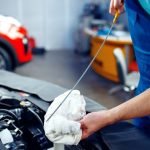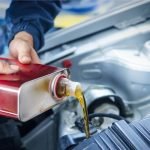Summer is finally here, and with it comes the perfect opportunity to hit the open road and explore all that our wonderful country has to offer. Whether you’re planning a long road trip or just want to enjoy a leisurely summer drive, one thing is certain: you need to make sure your car is in top condition. Car maintenance during summer is crucial for several reasons.
Firstly, hot weather can take a toll on your vehicle’s various systems and components, including the engine, transmission and cooling system. Secondly, summer driving conditions can be tough on tires and brakes due to increased heat and friction.
And finally, keeping your car well-maintained during summer can help prevent breakdowns or accidents while ensuring optimal fuel efficiency. In order to keep your car running smoothly this summer season, it’s important to comply with all car inspection and maintenance requirements.
This may include regular checks of your tires, coolant levels, battery health, air conditioning system and more. By following these guidelines closely and performing regular maintenance tasks as needed, you’ll be able to keep your car in top shape all season long.
Table of Contents
Tire Inspection and Maintenance: Keep Your Wheels Turning Safely
Your car’s tires are essential to your safety on the road, especially during the summer months. The high temperatures can cause your tires to wear out quickly, which can lead to a potential blowout.
This is why regular tire inspections and maintenance are crucial. The first step in tire inspection and maintenance is checking the tire pressure.
Underinflated or overinflated tires can cause uneven wear on the tread, which can affect handling and fuel efficiency. You should check your tire pressure at least once a month, preferably when the tires are cold.
The recommended pressure for your car’s tires can be found in the owner’s manual or on a label inside the driver’s door jamb. If you need to add air, make sure you use a reliable gauge to avoid overinflation.
Another critical aspect of tire maintenance is checking tread depth regularly. Uneven or shallow tread depth can reduce traction on wet roads, increase stopping distance, and increase the risk of hydroplaning.
To check tread depth, insert a penny into several areas of each tire with Lincoln’s head down. If you can see all of Lincoln’s head, then it is time for new tires.
It is also essential to rotate your tires regularly as they tend to wear more on certain sides due to weight distribution from driving habits and road conditions. Proper inflation not only increases safety but also fuel efficiency as under-inflated tyres create more rolling resistance therefore reducing fuel economy by up to 3%.
Cooling System Checkup
Keeping Your Engine Cool During Summer
The cooling system in your car is responsible for keeping your engine at a safe operating temperature. During the summer months, when temperatures can soar, it’s crucial to ensure that your cooling system is functioning properly. The first step in checking your cooling system is to inspect the coolant levels and quality.
To check the coolant levels, locate the coolant reservoir under the hood of your car. The reservoir will typically be marked with a “minimum” and “maximum” line indicating how much coolant should be present.
If the coolant level appears low, add more until it reaches the maximum line. In addition to checking the level, you should also inspect the quality of the coolant.
If it appears dirty or discolored, it may be necessary to flush and replace it. Another important aspect of your cooling system checkup is inspecting hoses for leaks or cracks.
Over time, exposure to heat and other environmental factors can cause hoses to deteriorate, leading to leaks or cracks which can result in a loss of coolant and ultimately overheating of your engine. Inspect all hoses connected to your engine and radiator for any signs of damage such as bulges or cracks on their surface.
If any are found damaged replace them immediately. Consider flushing out your entire cooling system if you haven’t done so lately as this helps remove deposits that can accumulate over time on internal surfaces inside the engine which can lead to clogged passageways that interfere with proper circulation of coolant through vital parts like cylinder heads etc., resulting in overheating problems down road if not addressed now while everything is still working fine!
Battery Maintenance
Checking battery terminals for corrosion
Your car’s battery serves as the heart of its electrical system, which is why it is essential to keep it in great condition during summer. One of the primary causes of battery failure is corrosion, which usually occurs around the terminals. Over time, a white powdery substance called lead sulfate builds up around the battery’s terminals and can inhibit proper electrical flow.
To check for corrosion on your car’s battery terminals, start by lifting the hood and visually inspecting them. You can use a wire brush or sandpaper to remove any powdery substances that accumulate there regularly.
It’s also advisable to clean them with a baking soda solution and water mixture if necessary. Corrosion on your car’s battery terminals usually leads to starting problems or even total loss of power, so be sure to take care of it as soon as you spot any signs.
Testing battery voltage and charging system output
Another crucial aspect of summer car maintenance is checking your vehicle’s charging system output and battery voltage regularly. A simple voltmeter test will reveal how much charge your car’s battery has left.
If you’re not experienced in testing batteries yourself, consider taking your vehicle to an auto parts store or mechanic who offers free testing services before heading out on long summer road trips. To test the charging system output, turn on all the electronic devices in your vehicle with the engine running at a steady speed.
The alternator should produce more electricity than what is being consumed by these devices. The excess power should then recharge your car’s battery while it runs.
Tips for extending battery life
It’s always better to prevent problems than fix them after they occur – especially when it comes down to expensive repairs like replacing batteries. To extend the lifespan of your vehicle’s batteries during summer months, there are a few things you can do.
Firstly, disconnect the battery when storing your car for long periods. Alternatively, use a smart charger that automatically switches off or reduces power when the battery is full.
Secondly, make sure you turn off all lights and electronic devices when turning off your engine to avoid draining your battery unnecessarily. Be sure to park in the shade whenever possible as excessive heat can damage batteries and other electrical components of your car over time.
Air Conditioning System Inspection
Checking refrigerant levels and pressure
When it comes to air conditioning, refrigerant is the key. Refrigerant is the substance in your AC system that cools the air.
If there isn’t enough of it, you won’t get cold air. That’s why it’s important to check your refrigerant levels regularly, especially before summer starts.
This can be done by a qualified mechanic who will use special equipment to measure the amount of refrigerant in your system and ensure that it’s at the appropriate level. In addition to checking the amount of refrigerant in your AC system, it’s also important to check its pressure.
The pressure can tell you if there is a leak or other issue with your AC system. If you notice that there is low pressure in your AC system, you might need to have a professional inspect and repair any leaks before refilling the refrigerant.
Inspecting belts, hoses, and filters
The belts and hoses in your car play an important role in keeping your air conditioning running smoothly. If they become worn or damaged during normal use, they can develop cracks or leaks that can cause them to fail completely. It’s important to inspect these components regularly for any signs of wear or damage.
Check for bulges or cracks on hoses and ensure that all clamps are tight and secure on both hoses and belts. In addition, dirty filters will restrict airflow through the system making it harder for cool air to circulate inside the cabin space.
How to clean or replace air conditioning components
If you notice any issues with your AC system during inspection such as poor airflow or weak cooling capacity then cleaning may be required. Cleaning involves removing dirt and dust from filters located inside the ventilation compartment box which houses various other parts including evaporator core. While cleaning may solve simple issues, you may need to replace parts like the evaporator core if it is damaged or leaking coolant.
Also, if your system is over 10 years old, it’s time to consider an upgrade as newer models perform much better and use less energy compared to older ones. Replacing your AC system can be a bit pricey but it’s worth the investment in the long run for optimal cooling performance during hot summer months.
Oil Change and Fluid Checkup
Importance of Regular Oil Changes During Summer Months
Regular oil changes are one of the most important maintenance tasks you can do for your car. During the summer months, oil changes become even more crucial.
The heat of summer can cause your car’s engine to work harder and become hotter than usual. This puts extra stress on your car’s oil, which can break down faster in high temperatures.
Dirty or old oil can lead to engine damage, decreased fuel efficiency, and other problems. To keep your engine running smoothly during summer road trips, it’s recommended that you change your car’s oil every 3-5 thousand miles.
If you regularly drive in hot or dusty conditions, you may want to consider changing it more frequently. Be sure to use the type of oil recommended by your vehicle manufacturer for optimal performance.
Checking Other Fluids Such as Transmission Fluid, Brake Fluid, etc.
In addition to regular oil changes, it’s important to regularly check other fluids in your vehicle during summer months. This includes checking transmission fluid levels and quality as well as brake fluid levels.
These fluids play a crucial role in keeping your car running smoothly and safely. Transmission fluid helps lubricate all moving parts within the transmission system while brake fluid helps transfer pressure from the pedal to the brakes themselves so that they function properly when needed most – like when stopping quickly on a slippery road surface.
How to Identify Signs of Fluid Leaks
Fluid leaks can be a sign that something is wrong with your vehicle and should be addressed immediately. During summer months when engines work harder than usual due to higher temperatures and longer road trips; leaks are more likely due to increased wear & tear from prolonged use. Common signs of fluid leaks include low fluid levels or puddles under the parking spot where you parked overnight (especially oil or coolant leaks).
Weird smells like burning oil or sweet-smelling antifreeze can also indicate a leak. If you notice any of these signs, bring your car in for inspection and repair sooner rather than later to avoid more costly repairs down the line.
Conclusion
Complying with car inspection and maintenance requirements during summer months is crucial for the longevity and safety of your vehicle. Failing to do so may result in costly repairs or even accidents on the road. By regularly checking your tires, cooling system, battery, air conditioning system, and fluids, you can ensure that your car is in top condition for all of your summer adventures.
Remember that prevention is always better than cure when it comes to car maintenance. By keeping up with routine inspections and maintenance tasks, you can catch potential issues before they become major problems.
This not only saves you money in the long run but also keeps you safe on the road. So don’t neglect your car this summer!
Take the time to perform these easy inspections and maintenance tasks to ensure that your vehicle is running smoothly all season long. And remember – by keeping your car in top condition, you’re not only protecting yourself but also other drivers on the road.






